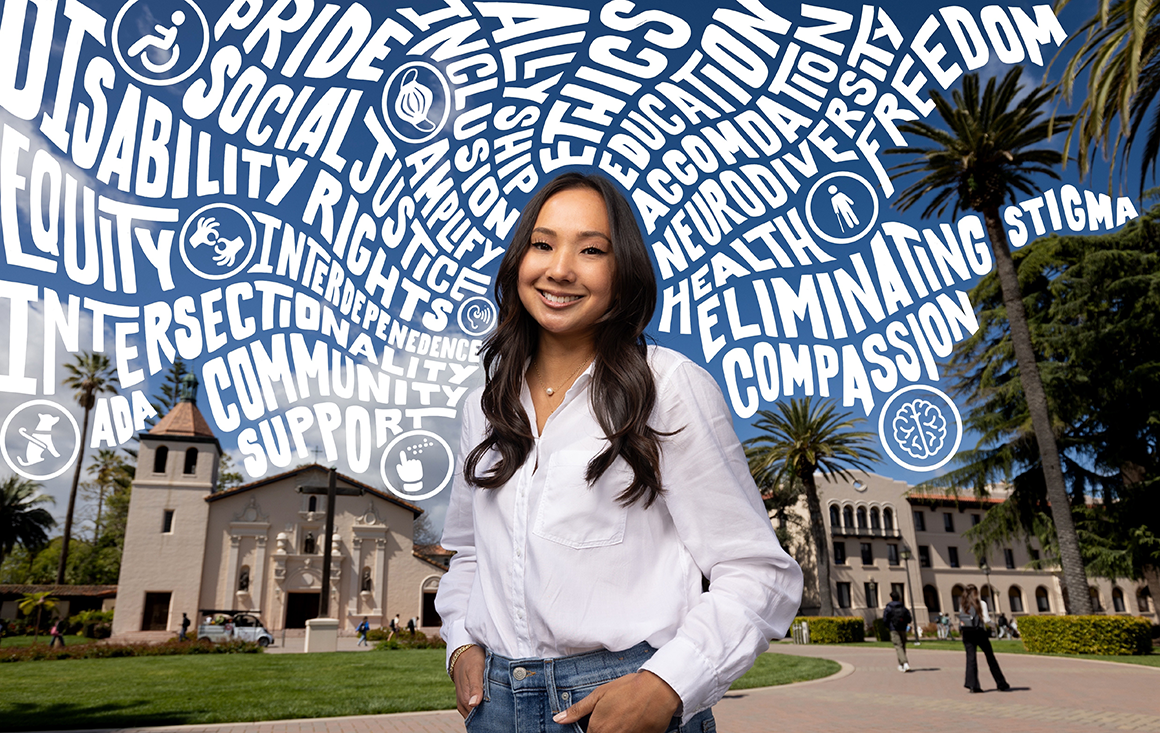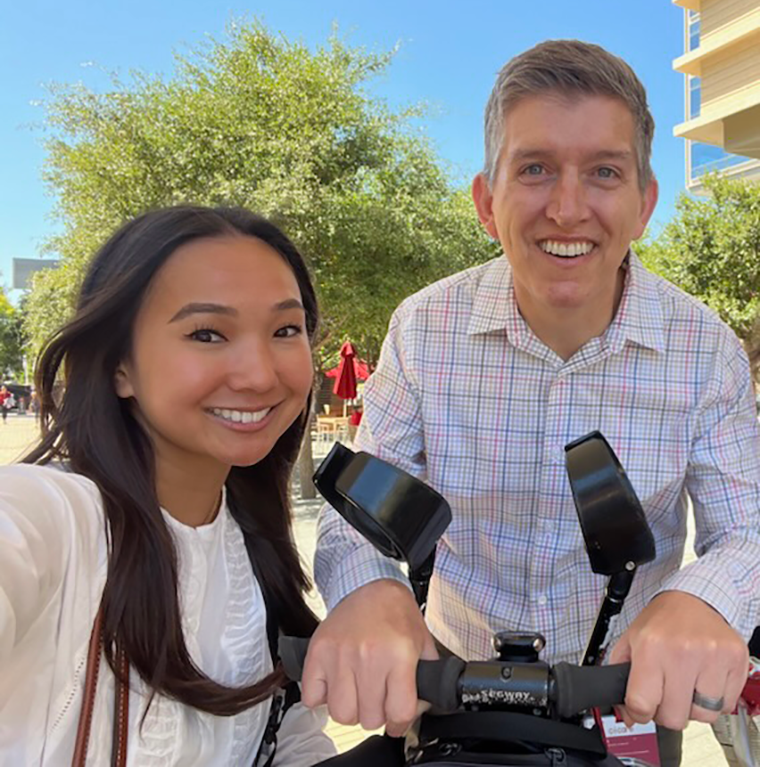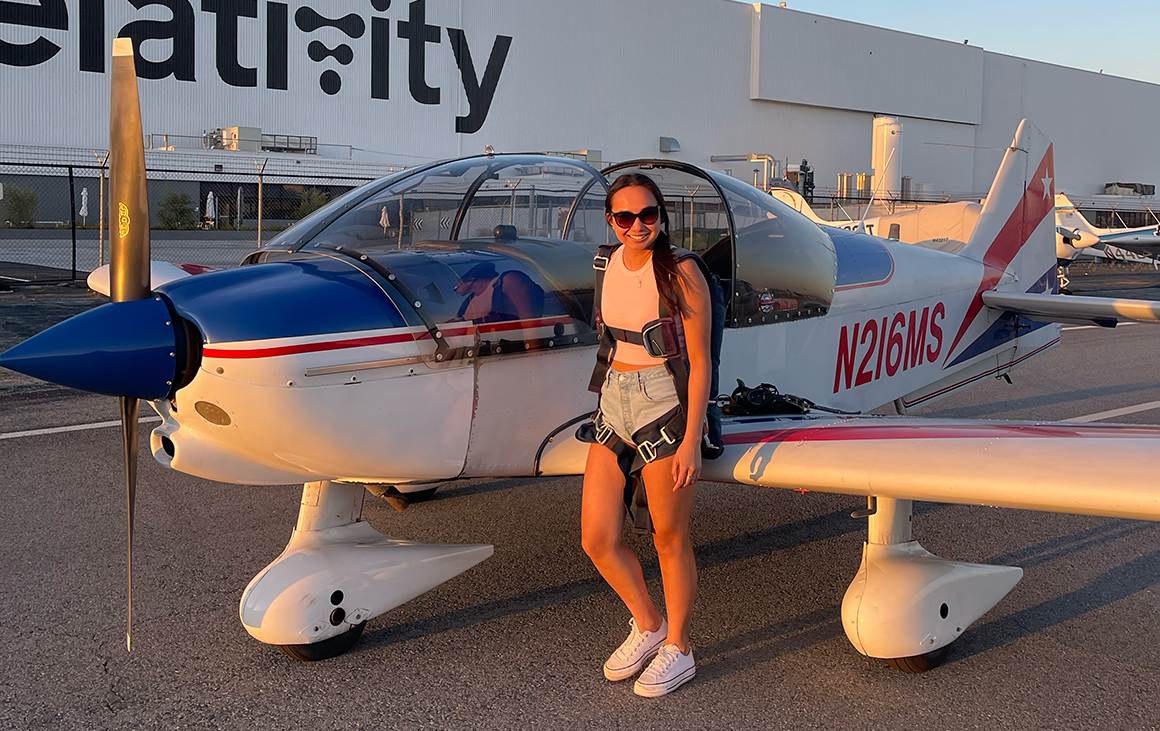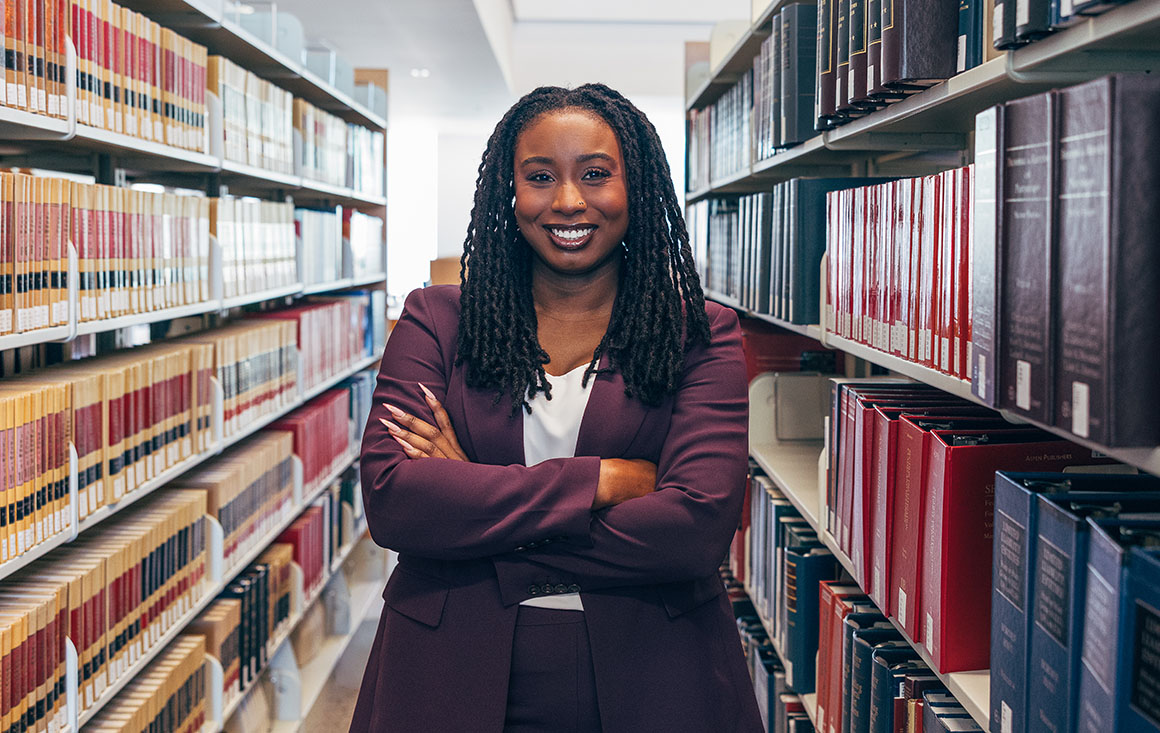Not an Afterthought

Driven is just one word to describe Isabella Reyes ’24.
At fifteen, she boldly decided to follow her lifelong interest in aviation. Flight school is an arduous process for anyone, let alone a teenager. However, Reyes secured her private pilot’s license and instrument rating and won one of the most competitive awards in the country for young pilots—all before she graduated high school.
Her big dream? To shake up the male-dominated world of aviation where women make up only 9% of commercial airline pilots. By the time she started college in 2020, her dream seemed within reach. She knew studying mechanical and aerospace engineering at Santa Clara University would give her valuable technical knowledge to set her apart in her future career. Life was cruising at a steady altitude.
However, when COVID-19 sent her college classes to Zoom, she realized something was missing from the future she wanted: people.
“As much as I loved flying, I didn’t feel like I was going to connect with people as much as I wanted,” she explains. “After experiencing the isolation of the pandemic, that little wave pilots give passengers as they’re boarding or the chats they have with their co-pilot—it just wasn’t enough for me. I wanted to do more for my community.”
The lightbulb moment
Looking through SCU’s other offerings, healthcare stood out as a way to make a difference, and the neuroscience program in particular piqued her interest. So, with the same gusto that launched her into aviation, Reyes changed her major and sought as many hands-on experiences as she could, including an opportunity that would shift her entire college trajectory.
Reyes knew she needed to get clinical hours if she was ever going to pursue a career in medicine. Luckily, a friend connected her to Dr. Peter Poullos ’94, a Santa Clara grad and Clinical Associate Professor of Radiology at Stanford Medicine who was looking for an assistant. It was a perfect match.

Reyes with Dr. Poullos
By shadowing him, Reyes saw the way Dr. Poullos advocated for patients—even those outside his department. In addition to interpreting MRI and CT scans, Dr. Poullos, who has incomplete quadriplegia, also serves on several hospital boards and committees dedicated to increasing diversity representation and awareness within the medical field. His passion resonated deeply with Reyes.
“My brother was diagnosed with Asperger’s when he was 16, and the struggle to get that diagnosis was a lot for our family,” she recalls. “He went through a lot of bullying before then, and even now, a decade later, he still doesn’t always feel understood.”
Connecting her brother’s experiences and Dr. Poullos’ work was a lightbulb moment for Reyes. Medical systems tend to focus on disabilities from a purely biological framework—like her brother’s diagnosis fulfilling certain medical criteria—which means doctors can often neglect how social stigma and inaccessible design affect their lived experience.
If she could consider more perspectives from the disabled community within her future career, just as Dr. Poullos had, she felt she could impact the lives of the 42.5 million Americans living with physical or mental disabilities, including her brother.
“Within these larger conversations about diversity, I kept feeling that I should know more about disability, so I started asking how Santa Clara University supported people with disabilities, and what more we could do,” she recalls, describing how she took anything and everything she was involved in at SCU, whether it was the University Honors Program or Health Professions Peer Advising program, and incorporating disability awareness into those spaces. “From there, it just kept growing.”
Unified efforts, coming change
By her junior year, Reyes had made a name for herself as a disability advocate on campus—so much so, that she was recruited for a special position at the Office of Accessible Education (OAE) to help bring the existing voices and work being done by SCU’s disabled community together into more unified action.
“I believe our community’s charge is to go beyond just ‘compliance’ in order to create a transformative experience for disabled students on campus,” James Marik, Director of OAE explains. “By bringing an endless amount of empathy, humility, and an objective sense of purpose, Isabella has planted seeds that will help us reach that goal in the next few years.”
Through her OAE role, Reyes collaborated with several members of SCU’s disabled community—including Alex Coleman ’25, Dylan Ryu ’26, and Assistant Professor Molly King—on a range of new projects that would impact student life and academics.
These projects included developing an official set of guidelines for holding accessible events, the constitution for a new Disabled Students Union (DSU), and a proposal for a new Disability Studies minor that would draw from subjects ranging from anthropology to public health. The DSU is set to be approved by the Student Senate later this spring, and the Disability Studies minor is currently in development.

After graduation, Reyes plans to take a gap year before medical school to learn aerobatics, or trick flying maneuvers.
She is also bringing her empathy and curiosity about the lived experience of disability to a Hackworth Fellowship case study project, which will explore how accessibility intersects with healthcare, education, and workplace ethics.
For example, inspired in part by advocacy work and research done by fellow student Coleman, Reyes’ project asks, how should a university revise its sexual health workshops to better resonate with how a neurodiverse student might interpret body language or other more ambiguous forms of consent? Or how might inaccessible medical equipment leave patients with disabilities at a higher risk for undetected illness? What ethical responsibility is there to address these issues?
Through this project, Reyes hopes to inspire a deeper cultural shift at Santa Clara that will continue long after she’s gone—one that emphasizes the importance of interdependence and mutual understanding.
“Disability should not be an afterthought. It’s an integral part of any conversation about diversity,” she says. “Real progress hinges on representation and ensuring that every voice, especially those of people with disabilities, is heard and valued in shaping the world around us. Santa Clara gave me the space to further that conversation and helped me realize my potential to create that change.”
The Office of Accessible Education has been designated by the University to ensure disabled students have equitable access to all academic and University programs. We strive to support students with disabilities so they can participate fully in campus life, its programs, and activities.


